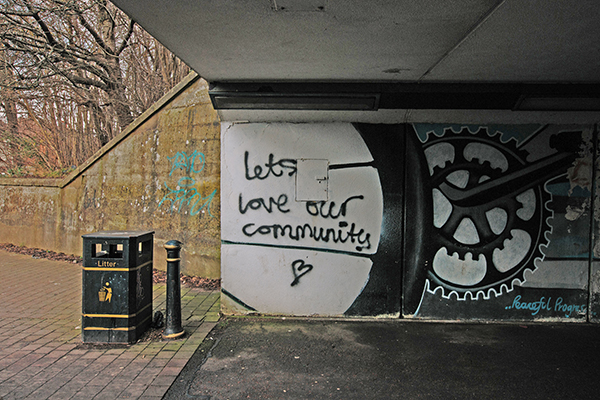
Profits? Yes! Performance? Check! What about Charity?
I was volunteering my time at the Lancaster Chamber, working full time, and trying to maintain some semblance of balance at home. At the Chamber, we were working through a reorganization, a new business model, and buying and moving into a new building. My own business was growing and the dog still needed to be walked and my husband and kids still needed time and love. It was a crazy season.
During this time I started to focus on the idea that I had a mission of helping my “community be better” through my business. Through the Chamber I was working to promote the concept that when a community is strong, its businesses are strong—and when businesses are strong the community is strong. I was preaching it, and it stuck with me. My business was and could continue to make a big difference in the community. I will call it social responsibility.
What is social responsibility?
For today’s purpose, we will say it is engaging in activities that are intended to benefit the local community’s programs and charities. It is not meant to boost the company’s profits or improve it’s performance. Corporate social responsibility should further good beyond the interests of the organization. Consider it this way—the intent is to make a positive impact for ethical reasons.
For years, as a company, we have donated money and offered pro bono services to various organizations in the community. This year, I thought that if we could get others involved in similar activities, we could get substantially more traction and increase our impact on the community exponentially. Out of that idea, 100 Days, 100 Ways was born. It is an initiative that gives people ideas of what they can do to make a difference in the community. We have created a starting point of ideas and a platform for sharing them. Now people can simply act upon the ideas and make improvements in our community. Visit theHandHgroup.com/100days. It is a call to action for myself, my employees, my customers, and our community to make a difference.
Okay, now what?
Excited? Ready to consider your own company social responsibility program? Here are some tips to consider for engaging plans and also for integrating a program.
When starting a program, you can consider the following engagement plans:
Operational Efficiencies. There are some things you might do to create a better operation and it can still be a socially responsible initiative. For instance, if you were to save money by making some ops changes so that you could hire another person, that works as a social responsibility program.
Environmental Sustainability. Let’s say you reduce the carbon footprint, start a recycle program or reduce waste within your company, it is community changing, therefore it is a social responsibility program.
Community Involvement. Things as simple as encouraging people to picking up trash on the street and be a friendly and kind neighbor are ways you can make a difference.
Philanthropy. Although philanthropy doesn’t just mean giving money, some companies do simply donate money to needy organizations in their community. Those actions change lives and change communities.
Tips for getting started.
Consider these tips for integrating a social responsibility program:
- Metrics – Success needs to be defined. For us, the 100 days, 100 ways program would be successful if we got more than just myself doing proactive activities within the community.
- Alignment with values, vision, mission, and purpose is important. Our purpose statement is “Significance”. Not only does the 100 days initiative fit with our purpose statement, but it also fits with our values, vision, and mission.
- Like the Nike commercials say, “Just do it.” Start an initiative. Everything you do makes a difference.
For the business people reading this article – consider this: As always in business, you need to be strategic. Set goals and go after them. Grow your business. Manage your profit and your performance. However, as a business, shouldn’t you also take social responsibility to make the community a better place?
The bottom line is that businesses need healthy communities. And societies need businesses that are sustainable, contributing to profits and paying taxes. When businesses work to make the community better, it is good for the community. And when communities are strong, businesses are stronger. There is a win-win in here folks.
I would be remiss if I didn’t mention that employees really like to work for companies that have cultures that include social responsibility. Besides making a difference, you might just become more sticky with employees because they like what you are doing.

2 replies on “Profits? Yes! Performance? Check! What about Charity?”
Hi Mary,
I love this concept. It is tapping into one of the core ideas that the Community Foundation is thinking about…how do we bring the private sector more closely into the work of community? How might businesses be authentically connected to our community success? We’re happy to be in conversation with the Chamber about how we can work together on promoting this idea and how we might amplify and tell the stories of businesses like H&H that are making this a priority. Thank you for your leadership and for challenging others to expand their thinking about what success can mean. Be glad to see you soon,
Tracy
Great thoughts, Mary!